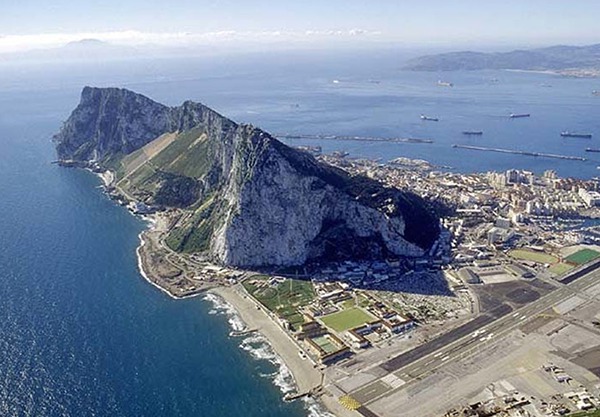“After a lot of hard work, I think we have seized success from the jaws of defeat.”
One headline that caught the eye this week came from the Washington Post.
“The Brits who beat Brexit: Gibraltar celebrates its return to Europe.”
The article described a quiet but historic shift that Gibraltar is rejoining Europe, at least functionally. After nearly a decade of limbo following the 2016 Brexit referendum, a treaty announced in June and due to come into effect in the coming months will eliminate most of the barriers to trade and travel that sprang up after Britain officially left the EU in 2020.
This is no minor development.
In 2016, Gibraltar voted by an overwhelming 96 percent to 4 percent to remain in the European Union. But the UK’s overall 52 percent to leave meant that the wishes of some 40,000 Gibraltarians were swept aside.
As the only British Overseas Territory sharing a land border with the EU’s passport-free Schengen zone, and as the subject of a long-standing territorial dispute with Spain dating back to 1713, Gibraltar became a principle casualty of Brexit.
Gibraltar’s economy relies heavily on cross-border workers—around 15,000 people, many of them low-wage Spanish residents, cross daily into the Rock to work.
Since 2016, officials from Gibraltar, Britain, Spain and the EU have attempted to resolve the problems.
In Boris Johnson’s haste to “get Brexit done,” the complexities of Gibraltar were largely ignored. As recently as 2023, experts warned that a hard border with Spain was inevitable.
Now, the UK–EU agreement on Gibraltar, negotiated between Gibraltar, the UK, Spain, and the EU, will effectively erase the border. Travel will become seamless. Customs checks and queues that once deterred visitors and disrupted workers will vanish. Tourists will no longer need to plan their trips around potential delays at the frontier. Gibraltarians will regain access to the Schengen Area, along with fresh opportunities for trade, mobility, and growth.
And the timing was symbolic. The announcement came just ahead of Gibraltar’s biggest civic celebration, National Day, on September 10. The crowds gathered in the main square, celebrating their British identity but also a new beginning with Europe.
“After a lot of hard work, I think we have seized success from the jaws of defeat,” said chief minister Fabian Picardo, Gibraltar’s top elected official.
“This is actually going to be an improvement over where Gibraltar was pre-Brexit,” he added.
Yet despite the significance of this diplomatic breakthrough, arguably one of the most pragmatic, cooperative outcomes of the post-Brexit era, it barely made a ripple in the UK press.
Where were the front-page headlines? Where was the analysis of what this means not only for Gibraltar, but for future UK-EU cooperation?
Instead, it passed almost unnoticed.
Says it all, really.
Left Foot Forward doesn’t have the backing of big business or billionaires. We rely on the kind and generous support of ordinary people like you.
You can support hard-hitting journalism that holds the right to account, provides a forum for debate among progressives, and covers the stories the rest of the media ignore. Donate today.





1 Comment
s0qysp